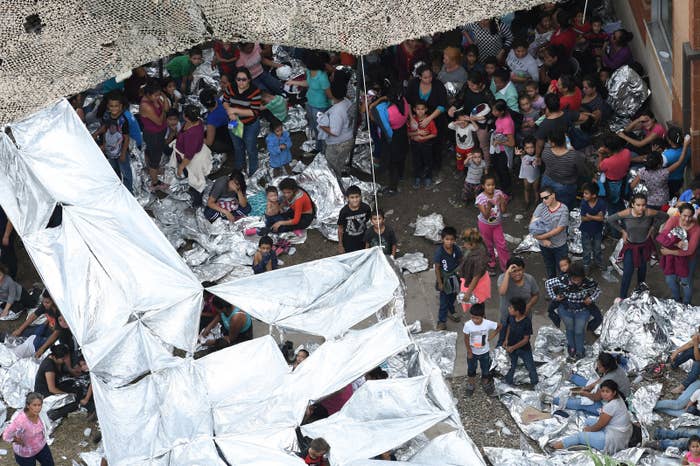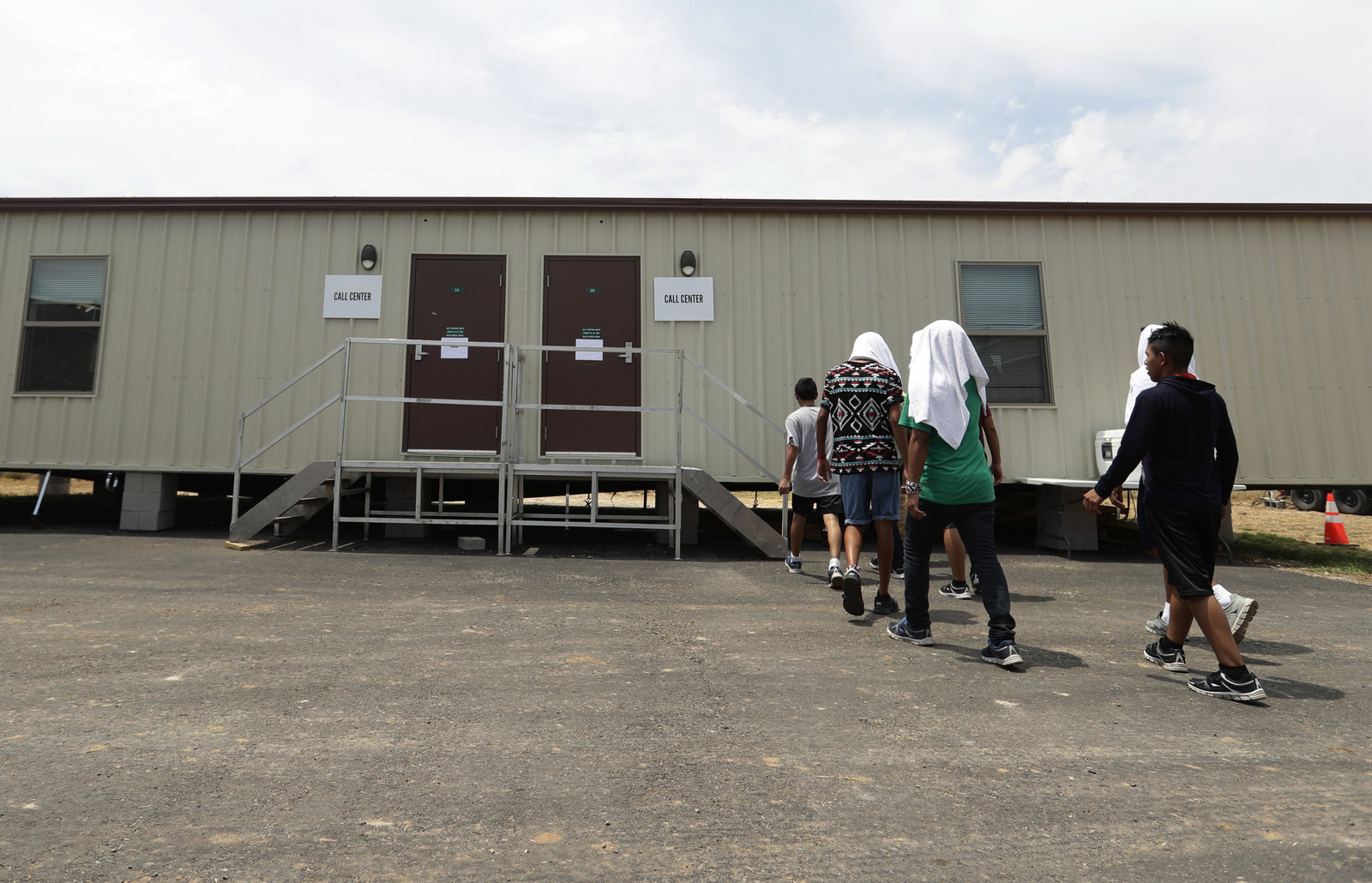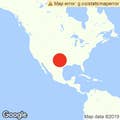
CARRIZO SPRINGS, Texas — A week ago, the Border Patrol chief overseeing overcrowded and dirty Texas detention facilities holding immigrant children blamed the poor conditions on the inability of another federal agency to receive and care for the children.
But that agency, the Department of Health and Human Services, said Wednesday it has taken in every unaccompanied immigrant child referred to them by Border Patrol officials.
"We received every child that was referred to us," said Mark Weber, a spokesperson for HHS. "If the child is not delivered to us we don't have the child to put in a bed."
The comments, which run counter to what immigration officials have claimed, came Wednesday during a media tour of a newly-opened unaccompanied minor facility in Carrizo Springs, Texas. Weber said HHS has no control over which child gets referred to them from the Department of Homeland Security.
The finger-pointing among agencies tasked with caring for immigrant children arriving at the border comes as reports of dirty, overcrowded, and unsanitary conditions have trickled out in recent months, and DHS officials blamed HHS for not having enough bed space to transfer hundreds of children held in Border Patrol stations.
Attorneys who visited a facility in Clint, Texas, last month said unaccompanied children were held for weeks without soap and toothbrushes, and received inadequate food, water, and sanitation. Aaron Hull, chief of Border Patrol’s El Paso sector, which includes the Clint facility, pushed back on the reports, saying HHS didn't have the capacity to take the children they were apprehending, leaving officials with no choice but to continue holding the kids.
"We can't hand them over to ICE and Health and Human Services because they have their own resource constraints," Hull said in a Fox News interview. "And the aliens tend to build up in our custody and that's really what this is about."
Hull's statements echoed those of Carla Provost, the chief of Border Patrol, who has previously said HHS was overwhelmed and did not have enough bed space to care for the children.
USBP is legally obligated to transfer children w/o a parent or legal guardian to HHS. When HHS cannot take them b/c they don’t have the bed space, we care for them the best we can w/ our limited facilities & resources. I’ve been warning Congress about this for months. February:
But HHS said that while it was consistently running close to capacity for the past several months, it was able to unify enough children with their parents or family members to have beds available.
"We cut it close," Weber said.
At the Carrizo Springs facility Wednesday, a 17-year-old boy said he had spent six days at a Border Patrol station unable to shower or sleep before he was transferred into HHS custody.
"It was really packed, you couldn't sleep because the agents would constantly wake us up," the teen, who asked not to be identified, told BuzzFeed News. "The lights were always on and the air was really cold. They would only give us aluminum blankets."
He now spends much of his time attending English, math, and science classes at the facility, located down a dusty, gravel road in southwest Texas. BCFS, a nonprofit organization contracted by the government to hold the children, has set a 30-day target for getting them resettled with a sponsor in the US.
In May, Border Patrol agents apprehended more than 11,000 unaccompanied children along the border, the highest number this fiscal year. That same month, about 1,000 children in DHS custody were held longer than 72 hours — the legal limit. As of Tuesday, Weber said Border Patrol wasn't holding any children for more than 72 hours.
While HHS could have expanded capacity at a facility in Homestead, Florida, to take in more children, DHS officials did not refer enough children to warrant it.
"We did not have to use capacity even at those numbers," said Weber referring to the 1,000 children held for more than 72 hours by DHS.
A DHS spokesperson did not immediately respond to a request for comment.

In a letter sent to members of Congress last month asking for $4.5 billion in emergency appropriations, HHS Secretary Alex Azar and acting DHS Secretary Kevin McAleenan said that as of June 10 there were 1,900 unaccompanied minors held by CBP waiting to be placed in HHS custody.
At the time, HHS had fewer than 700 open beds in which to place children, the letter said. The following month, HHS said it needed $2.9 billion to increase shelter capacity, "sustain critical child welfare and release operations."
HHS' Office of Refugee Resettlement, which manages the unaccompanied minors program, has seen a spike in referrals of children from DHS, receiving more than 52,000 unaccompanied immigrant kids since October, an increase of over 60% from the previous fiscal year.
"Referrals in May, totaled 9,099 — one of the highest monthly totals," HHS said in a statement. "The number of referrals is unpredictable. If these numbers continue, this fiscal year ORR will care for the largest number of [unaccompanied immigrant minors] in the program's history."
As of July 8, about 12,500 unaccompanied children were being held in ORR custody across nearly 170 facilities in the US. Some of the children crossed the border by themselves, while others may have crossed with family members or friends who were not their legal guardians, resulting in them being separated and designated as unaccompanied minors.
Kevin Dinnin, the president and CEO of BCFS, said he agreed to open the Carrizo Springs site for a contract worth up to $300 million because he believes children should not be detained in a Border Patrol facility. Still, the construction of the latest facility may have come too late given the recent drop in border apprehensions in June.
"Maybe it's too much, too late," Dinnin told reporters. "It should have been here in May."

